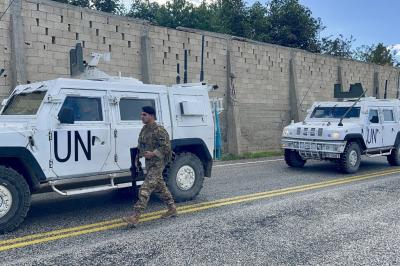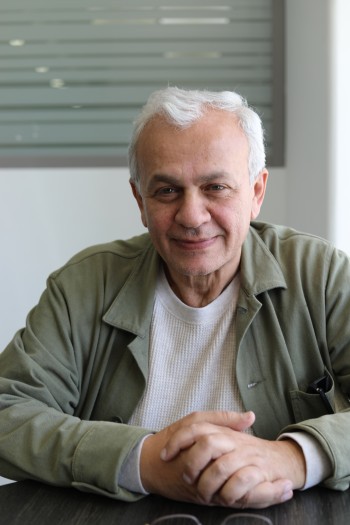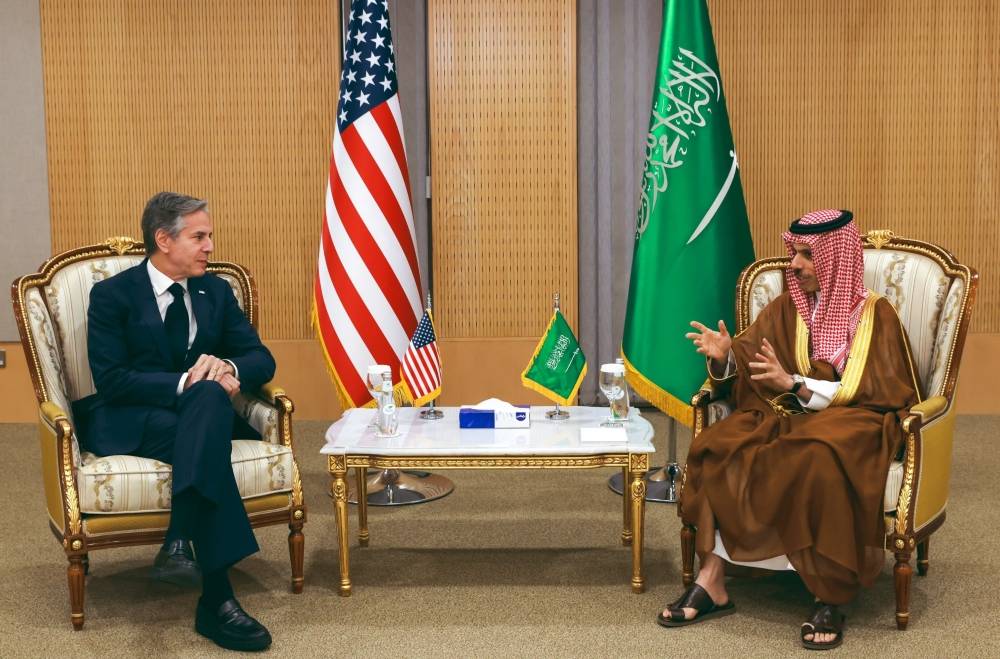Behind the scenes of the meetings in Jeddah and the gatherings in Riyadh, remarkable developments are unfolding in the language of communication between Saudi Arabia and the United States. Imperative tones are giving way to a pragmatic approach that emphasizes the pursuit of mutual benefit and respect for each other's uniqueness.
Last summer, U.S. President Joe Biden made a crucial visit to Riyadh, hoping to turn the page after a tense period between American Democrats and Saudi Arabia, marked by his uncompromising stance towards the kingdom during his election campaign. Shortly after assuming office, he had frozen sales of offensive weapons to the Saudi military, despite their urgent needs in the Yemen conflict. Furthermore, sanctions had been imposed on Saudi officials, and some individuals from the country had been banned from entering the United States. However, Biden took his previous statements into account and flew to Riyadh for a crucial meeting with the king and crown prince, seeking to "rectify" an error and avoid offending a country with significant regional influence due to its oil wealth.
One year after that visit, U.S. Secretary of State Antony Blinken traveled to Jeddah for a crucial meeting with the Saudi king and crown prince, aiming to reaffirm the strength and cohesion of the alliance between the two countries. However, this initiative seems to have been undertaken belatedly. During the year that separated Biden's and Blinken's visits, Saudi Arabia underwent major changes and turned towards its partners in the Far East, establishing bold relations with China. It paved the way for Beijing to facilitate a dialogue between Saudi Arabia and Iran, resulting in a historic agreement between the two countries and leading to profound transformations in the Middle East. It is noteworthy that the reopening of the Iranian embassy in Riyadh, after a seven-year diplomatic rupture, coincides with the visit of the U.S. Secretary of State to Jeddah. Moreover, the simultaneous presence of Venezuelan President Nicolás Maduro, considered one of the main "enemies" of "American imperialism" in Latin America, adds a unique dimension to this situation. This "coincidence" could be interpreted as a message of "balance" that Riyadh seeks to promote in its foreign policy. It echoes a similar message emanating from the Arab summit in Jeddah, where both Syrian President Bashar al-Assad, an ally of Russia, and Ukrainian President Volodymyr Zelensky, an ally of Washington, were received at the same time.
Blinken's Talks in the Kingdom Highlight Clear Divisions Between Riyadh and Washington on Crucial Issues. Ahead of this visit, Saudi Arabia surprised by announcing a new voluntary reduction in its oil production, contrary to the desires of Washington, which seeks to increase production to cater to the needs of its former customers of Russian oil. Furthermore, Riyadh insisted on affirming its decision to normalize relations with Damascus, despite the displeasure expressed by the American Secretary of State to the Saudis on multiple occasions.
The rising presence of China in the Gulf was at the center of discussions. Blinken stated that Washington does not force anyone to choose between the United States and China. The Saudi response emphasized the importance of a diversified approach in international relations while underscoring the significance of revitalizing ties with Washington.
In the context of the Israeli-Palestinian conflict, the differences between the American and Saudi positions were clearly evident. The Biden administration seeks to achieve the signing of a peace agreement between Saudi Arabia and Israel, considered its "crown jewel" compared to the Abraham Accords concluded by the Trump administration with other Gulf and Arab countries. The White House is fully aware of the importance of Saudi Arabia's announcement of willingness to reach such a peace agreement with Israel and its regional and global impact within Muslim nations. It is precisely for this reason that Blinken's visit was invested in this endeavor, but it faced the Saudi reality. Riyadh sees no issue with making peace with the Israeli state, provided that it is preceded by a resolution of the Israeli-Palestinian conflict through the realization of a two-state solution, with East Jerusalem as the capital of the Palestinian state. According to the kingdom, the establishment of this Palestinian state is the key to peace and stability, contradicting the Biden administration's claims that the qualitative advancement of Saudi-Israeli relations is the key to peace and stability.
The atmosphere during the meeting in Jeddah and the gatherings in Riyadh revealed that the communication between the kingdom and the United States has evolved, moving from a rhetoric of directives to a pragmatic approach focused on the pursuit of common interests while considering the specificities of each party. It seems that the Biden administration has recognized that Saudi Arabia has become an indispensable regional and international player, requiring a reassessment and restructuring of its political discourse. The role of Saudi Arabia in resolving regional issues cannot be overlooked, and its positions cannot be ignored.
Riyadh Stands Firm as the Biden Administration Approaches the Final Stretch of its Term. As the Biden administration approaches the final stretch of its term, with mounting issues and the prospect of losing Democratic control of the presidency, Riyadh remains steadfast in its positions. Meanwhile, Saudi Arabia has made significant progress in its relations with China and its efforts towards reconciliation with Iran, Turkey, and Syria. The kingdom is resolutely committed to shaping a Middle East where it plays a crucial role, capitalizing on its economic power, moral influence, and political standing. However, this does not mean that Saudi Arabia will neglect U.S. strategic interests or security cooperation between the two countries. This particular relationship is not subject to bargaining or American concerns regarding Gulf economic ties with China, as long as security control remains exclusively in American hands, including arming the Gulf armies and preserving international maritime routes through American fleets and bases.
Indeed, the world is undergoing transformation, but the United States continues to rely on its capacity to fend off any force that might jeopardize its global position. This is the essence of the ongoing international conflict. Nevertheless, the changes occurring on the world stage, particularly China's rapid progress towards the Gulf and the rapid developments in the Middle East, may have alerted decision-makers in Washington to the need to reevaluate American policies in this crucial region of the world. Allies have lost confidence, feeling an increasing distance between them and the United States. Therefore, the current administration may strive to rectify the damage caused to its relationships with Gulf countries, especially Saudi Arabia, not only by correcting past mistakes but also by recognizing the fundamental importance of the partnership with Riyadh. Failure to do so will have consequences for everyone, including Washington.
Please post your comments on:
[email protected]
 Politics
Politics














